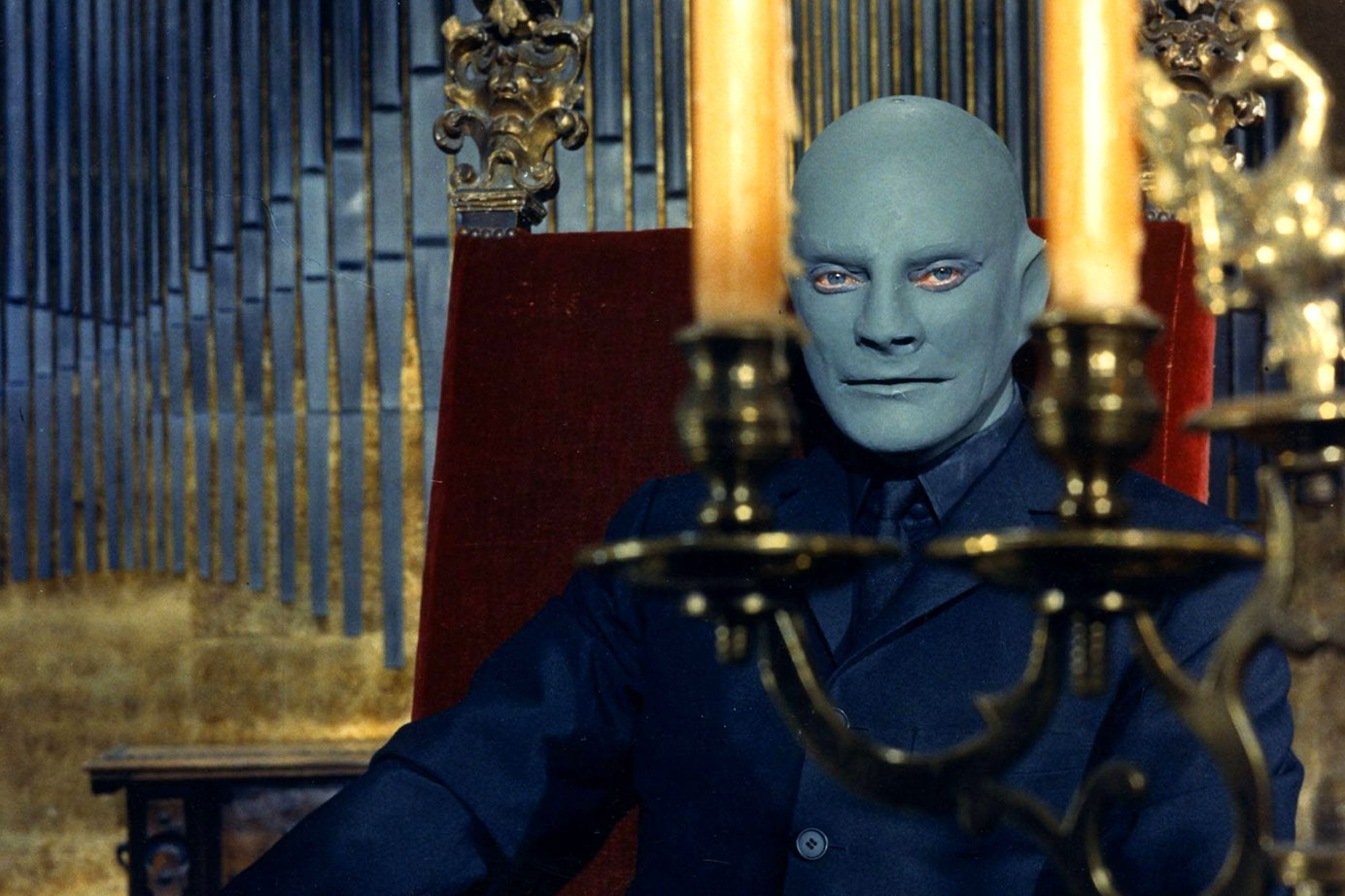The three Fantômas movies directed by André Hunebelle in the 1960s diverge significantly from the novels. Inspector Juve—a famous detective whose deductive powers are consistently described as unparalleled in the books—is recast as a buffoonish police chief to create a series of capers in the same family as Peter Sellers’ Pink Panther films. Certainly the macabre surrealism of the novels is gone in this winking adaptation, such that the Lord of Terror becomes a comic book version of himself.
This is not to suggest the films are flawed. On the contrary, Louis de Funès is wonderful as Juve, and the loose adaptation brilliantly reveals the latent comedy in the innumerable cases of mistaken identity that occur in the novels.
In the first film, Fantômas (1964), for example, Juve dresses as a tramp to do some undercover investigation, only to be arrested by his own officers who take his protestations for the ramblings of a drunkard.
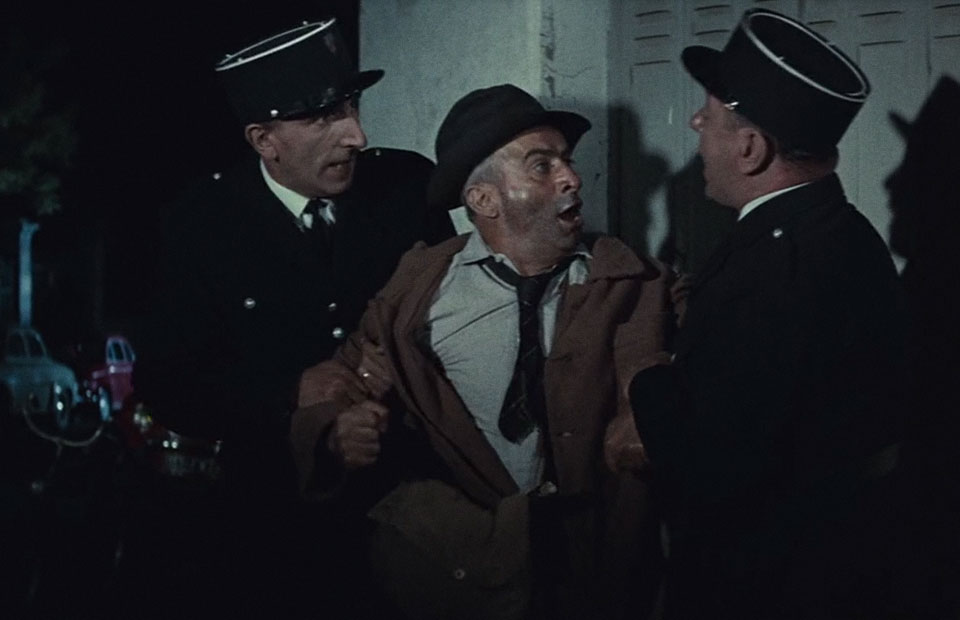
Later, Fantômas disguises himself as Juve to rob a casino, so that when the real Juve arrives on the scene to interview the witnesses, they all finger him as the culprit, leading to a comic reversal in the next scene, with the police chief being interrogated and roughed up by his subordinate.
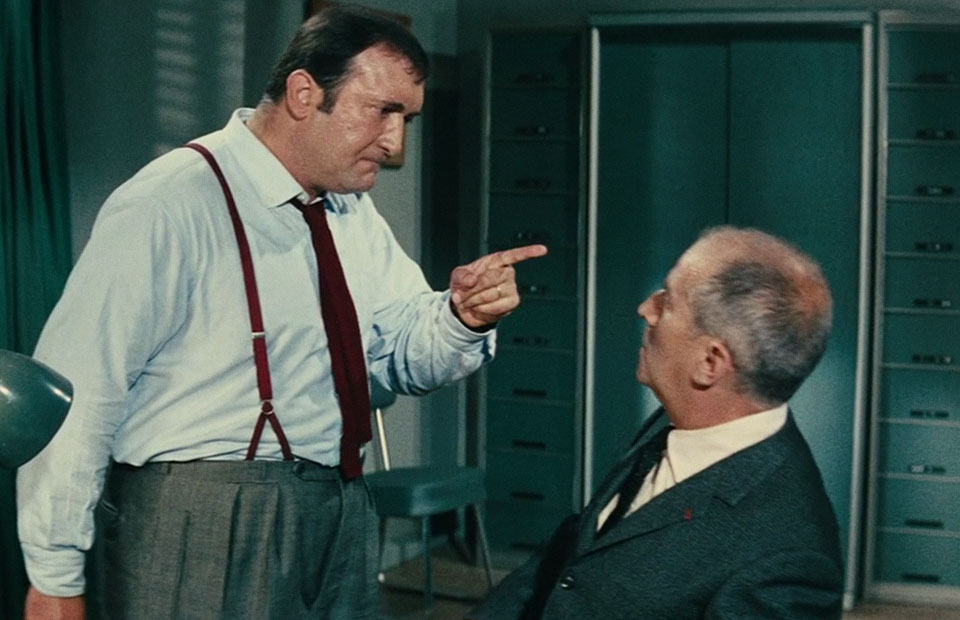
Another difference in the 1960s films is the character of Fandor. In the books, Juve is a beloved father-figure to the younger man, and though he is sometimes reckless, the intrepid journalist is almost as obsessed with behaving honorably as the detective. In the films, however, their bond is absent: Fandor ridicules the clownish police chief in his articles at the beginning of the first film, and the second film—Fantômas se déchaîne (Fantômas Unleashed)—has Juve calling Fandor a hack on television after the journalist publishes reports of Fantômas’ resurrection. This lighthearted combat is all in the service of Funès’ Juve playing the fool: as soon as the commissaire emphatically swears on TV that Fantômas has not returned, Fantômas cuts in with his own pirate broadcast to announce his imminent world takeover. When the screen cuts back to the picture of Juve, he is now bound and gagged.
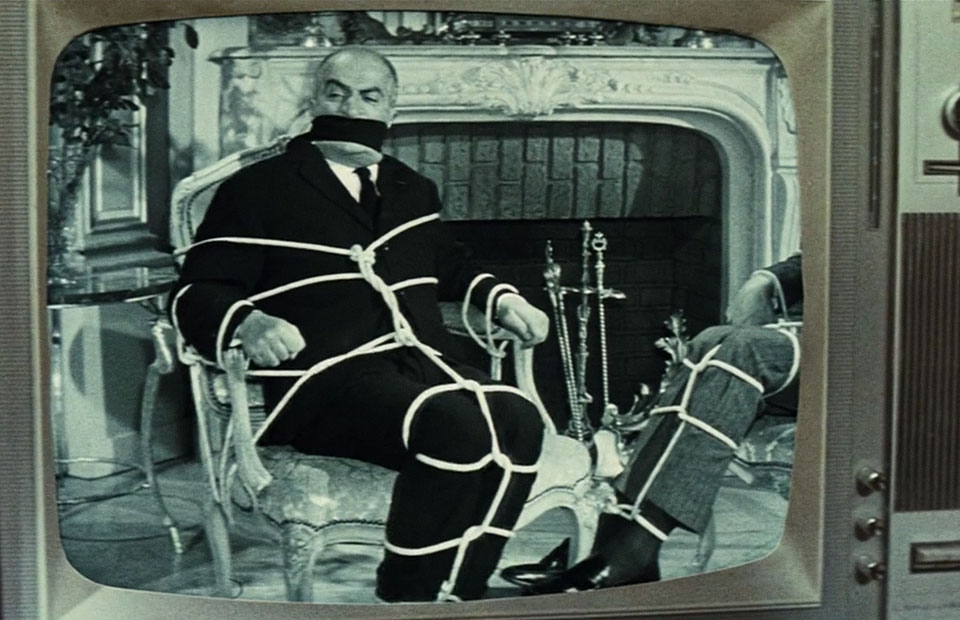
Humiliated, Juve gets chewed out by his superior and declares to his police officers that it’s time to adopt new tactics. He demonstrates a device with a false arm concealed beneath an overcoat—a comically absurd contraption that nevertheless recalls some of the more outlandish contrivances used by Fantômas in the books during his countless escapes.
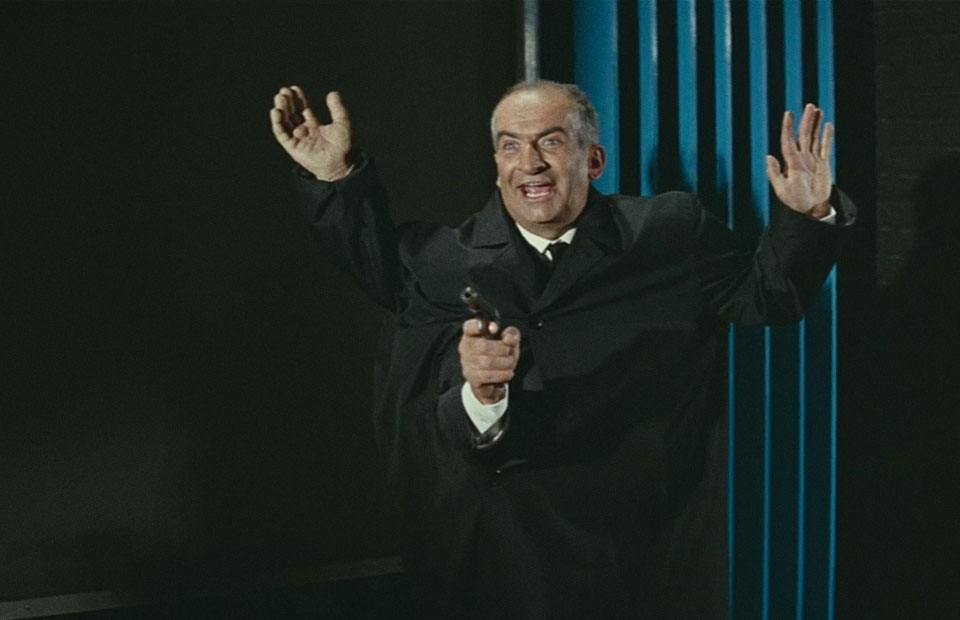
Juve’s disguises are also played for comic effect: the hapless police chief appears by turns in bumbling incognito as a monocled military officer who speaks bad Italian, a cassocked clergyman in a saturno, and a peg-legged buccaneer.
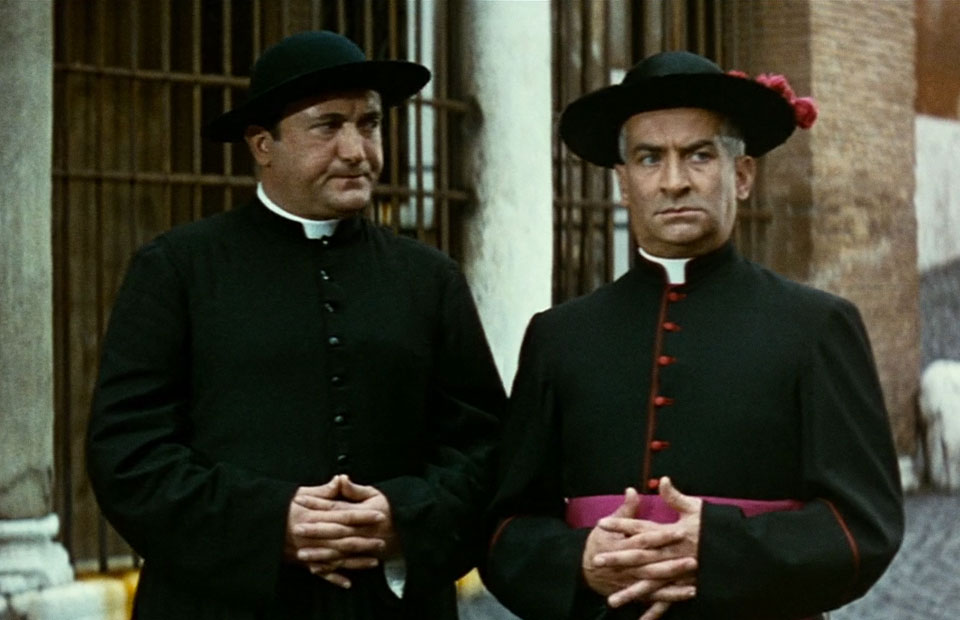
Another running gag is that, as a consequence of Fantômas’ elaborate wiles, Juve is repeatedly taken for a crazy person. In the second film, for instance, knowing Fantômas will try to kidnap a certain Professor Lefèvre who holds the key to creating a telepathic ray-gun, Fandor disguises himself as the elderly professor and takes his place at a scientific conference. When Fantômas, also disguised as Lefèvre, traps Fandor-Lefèvre, Juve bursts in with his police officers, but Fantômas-Lefèvre, now realizing he has been fooled by Fandor in disguise, escapes by pretending to be Fandor-Lefèvre. Then, adding to the confusion, the real Lefèvre shows up, and Juve tries to arrest him, mistaking him for Fantômas-Lefèvre. Just as he realizes his mistake, he is himself arrested by Italian police, who send him to a psychiatric clinic where the exasperated police chief tries to explain the hopelessly tangled web of identities to a panel of doctors and ends up in a padded cell.
A slight variation occurs in the third film, Fantômas contre Scotland Yard (1967), as Juve sees ghosts and vanishing corpses in the castle of Lord McRashley and begins to doubt his own sanity. Later, he loses his mount during a fox hunt and, wandering the woods in search of a horse, he chances upon Fantômas’ own steed. When he hears the chatter of the villain’s henchman over a two-way radio that remains out of sight, he believes the horse is talking, and the next scene has him lying in bed with his subordinate Bertrand tending to him like an pitiful nutcase.
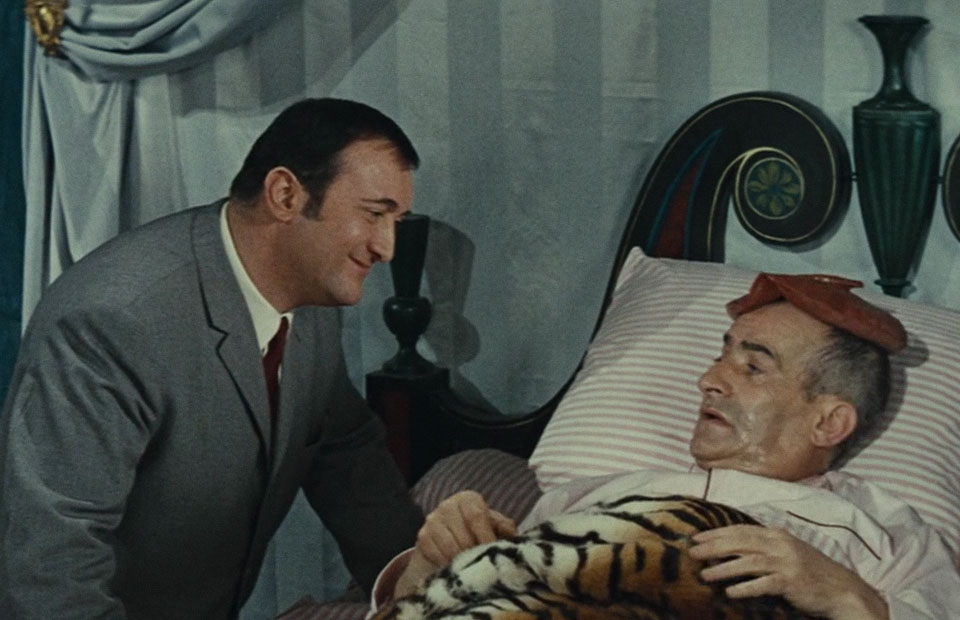
The first two films are perhaps better than the third, but this trilogy of capers is highly recommended for fans of Peter Sellers’ Pink Panther.
